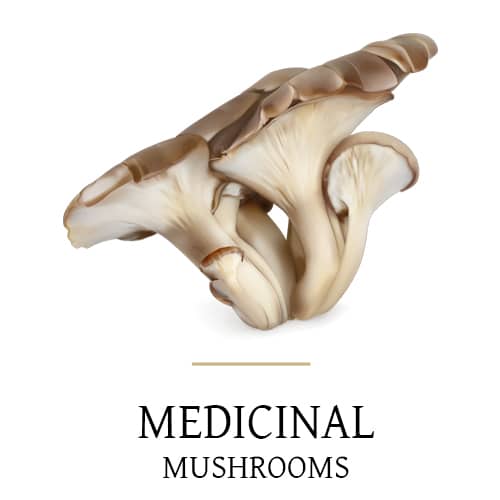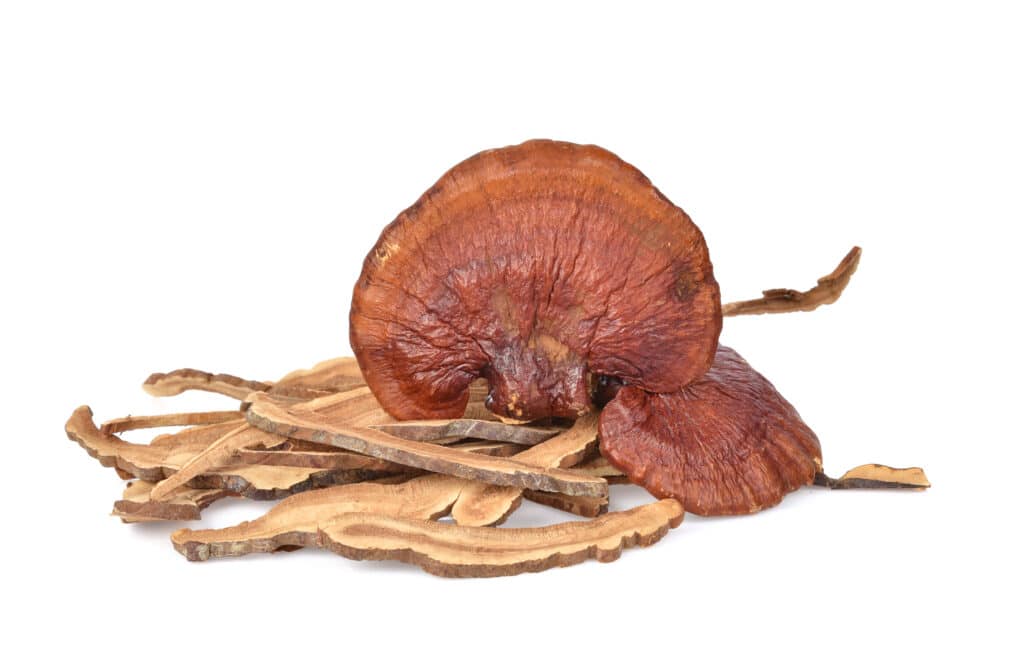
Medicinal mushrooms can contribute a lot to our health, but the question is what their impact on the gut is. Gut health is the foundation of your continued physical health. There are several mushrooms, such as Reishi and Shiitake, that can promote gut health. In this blog, you can read all about that.
Intestinal problems are common these days. Our stressful lifestyle plays an important role in this, but medication use, unhealthy eating style and poor sleep also play a role. Sometimes all these factors combine to cause chronic inflammation. This can cause symptoms such as PDS (irritable bowel syndrome).
The intestines are part of the digestive system. But we often overlook the fact that these organs cannot function without the gut flora (or microbiome). Our bodies cooperate and provide a habitat for billions of microscopic organisms, such as bacteria, viruses, fungi and yeasts. The health of this gut flora is connected not only to the health of our intestines, but to the whole body.
In fact, gut health affects your mental well-being, immune system, weight and blood sugar levels. So it is important to take good care of your gut. Not only does what you eat affect this, so do stress and use of medications. Medicinal mushrooms can also affect the gut. You can use them to support gut flora and gut health.

Mushrooms are rich in a variety of valuable substances and are known to be good for health. This is true even of the common mushroom. Research shows that it is good for gut flora diversity. Chaga and maitake are also healthy; they can help relieve intestinal discomfort, support the good bacteria in the gut and can help fight off fungi and viruses.
The medicinal mushrooms listed below are real powerhouses in terms of gut health and are highly recommended for regular use.

Those who want to support their gut health can take Lion’s Mane. This medicinal mushroom has antibacterial properties and can help protect the intestines from bacterial damage. It may be able to inhibit the growth of H. Pylori, which is associated with stomach ulcers. Furthermore, Lion’s Mane can help reduce inflammation in the digestive system and can promote the repair of the intestinal lining.
Research suggests that reishi may have prebiotic properties. As a result, it can help rebalance the microbiome. It supports the growth of the good bacteria. Reishi also has the most powerful anti-inflammatory properties of all medicinal mushrooms. This is good news for people with PDS and other conditions, which have inflammation as their root cause.
What makes shiitake special is that this mushroom not only has antibacterial properties, but also antiviral and antifungal. Shiitake can help support the immune system. It contains the polysaccharide lentinan. This substance has powerful antifungal properties and can be used for various infections.
Shiitake also helps improve your gut flora by promoting bacterial diversity and providing an attractive habitat for healthy bacteria. Research also shows that this mushroom is anti-inflammatory and can help protect immune cells from harmful pathogens.
The most well-known probiotics are those from the Lactobacillus and Bifidobacterum families. These are incredibly good for your intestines, so it’s important to get enough of them. Research shows that Turkey Tail can play an important role in keeping these two bacterial species healthy, but can also help stop the growth of bad bacteria.
It’s the large amount of prebiotic polysaccharides, fructooligosaccharides and beta-glucans in the elfin leaf that account for this. They are a healthy food for microbes and also support the immune system.
The link between gut health and overall health has become increasingly clear in recent years. Medicinal mushrooms can clearly have a positive effect on the intestines. But they are not the only way to take good care of your gut flora.
Of course, what you eat is very important. Make sure you eat varied and healthy foods, preferably home-cooked meals and as few highly processed foods as possible. The healthier you eat, the healthier and more varied your gut flora will be as well. And that, in turn, makes for robust physical health. Fiber (prebiotics) is also good for your gut. These are mainly found in plant products, such as fruits, beans, whole grains and vegetables. Fiber provides nutrition for your gut flora and allows the good bacteria to flourish.
Furthermore, fermented foods are another way to support your gut flora. Fermented foods contain many probiotics, which are good bacteria, fungi and yeasts. They can be found naturally in food, but can also be added to it by humans. Examples include sauerkraut and kombucha. Furthermore, yogurt, sourdough bread, salami and raw milk cheeses are also fermented foods. Try to put them on the menu regularly.
Do you want to start using medicinal mushrooms? They are generally safe to use and produce few side effects. Only if you are sensitive/allergic to mushrooms, it is wise to exercise caution and take this supplement only after consulting your doctor. Check out our shop for the offer. You can take capsules, extracts or a powder.



Valid from Dec 17 to Dec 27, 2024
Use the code below at checkout to receive 10% off the entire order.

